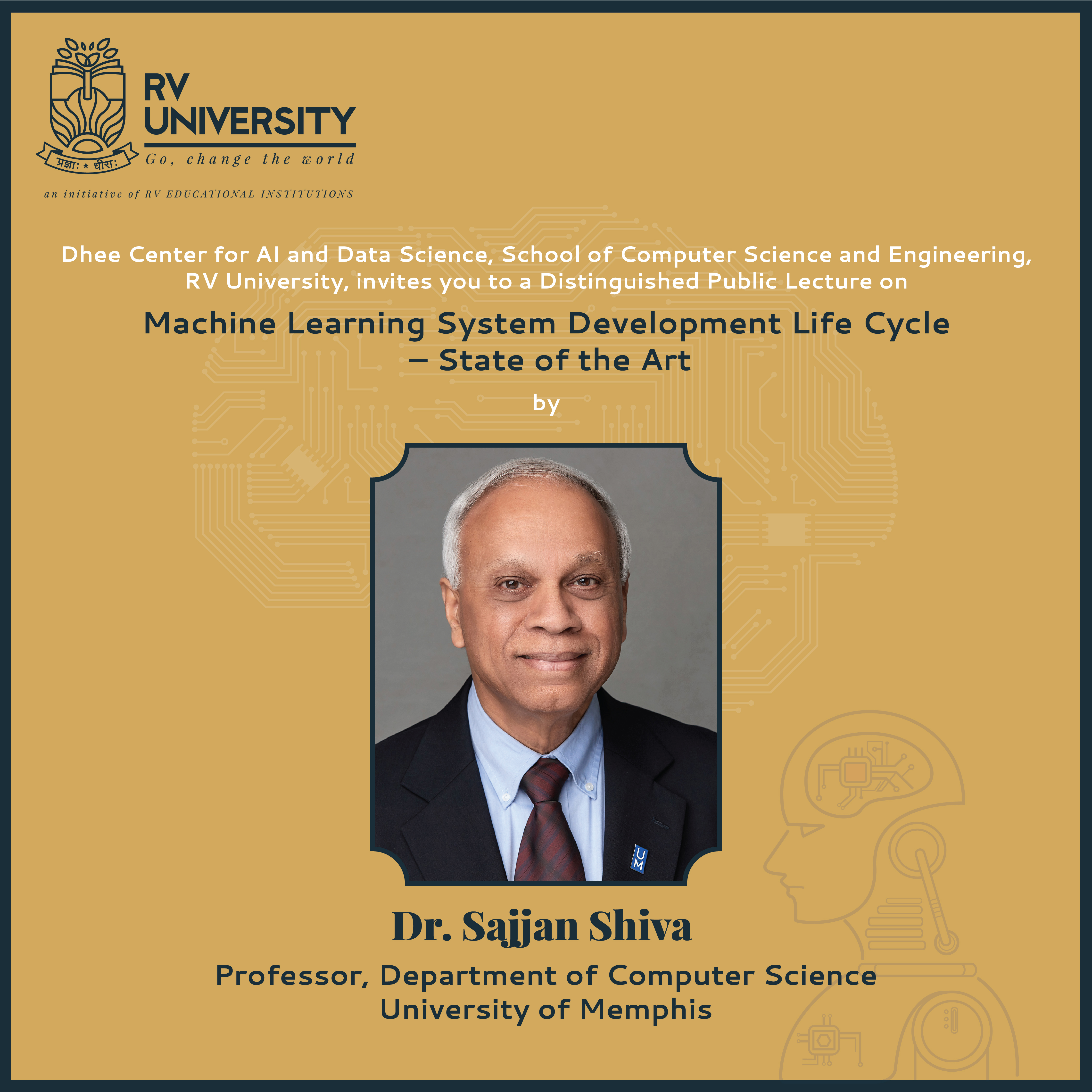Machine Learning System Development Life Cycle – State of the Art
11 January 2024 11:00 a.m. Senate Room, RV University, Bengaluru
Dr. Sajjan Shiva
Dr. Sajjan Shiva is currently the First Horizon Foundation Distinguished Professor of Computer Science and the Director of the Game Theory and Cyber Security laboratory (https://gtcs.cs.memphis.edu ) at the University of Memphis. He received a B.E (Electrical) degree from Bangalore University and MEE and PhD degrees from Auburn University. He is an IEEE Life Fellow. He served as the founding chairman of the Computer Science Department at the University of Memphis from 2002 to 2015. He has served on the Computer Science faculties of the University of Alabama in Huntsville and Alabama A&M University. He also has served as the Software Quality Manager, Technical Project Manager, and Senior Software Engineer in industry and has been a consultant to industry and Government since 1975. His current research spans game theory applications to cyber security, cloud security, secure software development, SCADA security, machine learning-based intrusion detection, and Frameworks for security and privacy assessment of the cloud and the Internet of Medical things. His research has been supported by NASA, NSF, the U.S. Department of Defense, and ONR. He has taught courses on computer architecture, software engineering, security testing of systems and software, cyber security, and cloud security. He has authored four books (10 editions) on computer architecture, now used in more than 120 universities around the world.
Abstract
Machine Learning (ML) has now taken over as the preferred method for building intelligent applications. Correspondingly, since ML systems are predominantly software applications, the software development process has transitioned from the traditional behavior-oriented process (programming) to a data-oriented process. Ideally, the ML system development workflow should follow the Software Development Life Cycle (SDLC) processes to utilize the lessons learned in traditional systems development. However, the data-centric nature of ML systems does not cater completely to this integration. This talk presents the state-of-the-art Machine Learning System Development Lifecycle (ML SDLC) and brief descriptions of Machine Learning Operations (MLOps). Although the industry has undertaken significant measures to streamline the ML system development and deployment and several new processes have been proposed by researchers, there is no accepted standard for the MLSDLC. In addition, with the current emphasis on building trustable ML/AI systems, their security mechanisms and explainability of prediction features have also become important, especially for critical applications. As such, we propose a security and explainability augmented ML system development life cycle.

